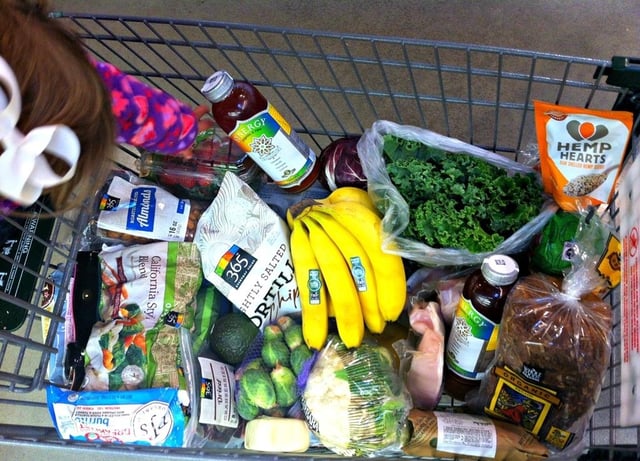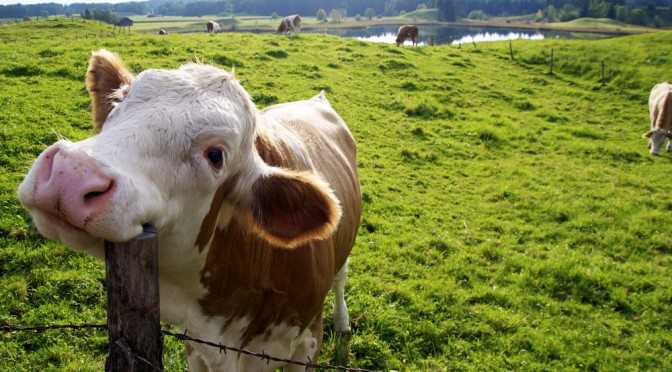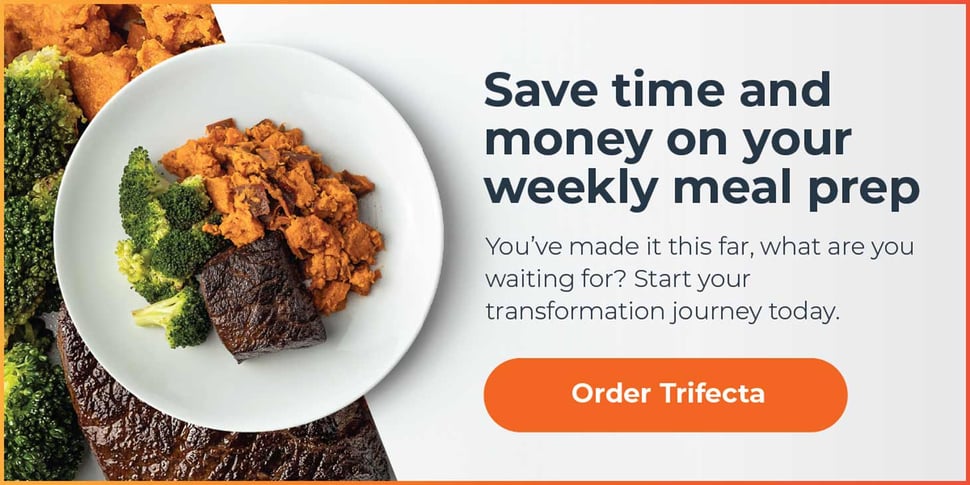Grocery shopping has become a comparison challenge. There are different brands, nutritional facts, ingredients, and prices to compare. It’s a constant battle to determine which product is the best fit for our needs. Sometimes, I’m almost relieved when there’s only one option because it saves me the headache.
Now on top of different brands, we get to compare labels for certifications. From Kosher to Non-GMO and beyond, the list is endless. It’s a struggle to understand what all the labels really mean. So how do we determine which label is worth the extra money? For us, there’s one label we don’t like to be without, and that’s Organic.
What is Organic?
I wish there was an easy one sentence definition for Organic, but the regulations are over 100 pages of printed text. Organic in the US, is governed by the United States Department of Agriculture (USDA). Those 100+ pages of regulations are developed by the National Organic Program (NOP), a part of the USDA, and they define what is organic from production and handling to labeling.
What's the NOP's definition?
Organic is a labeling term for food or other agricultural products that have been produced using cultural, biological, and mechanical practices that support the cycling of on-farm resources, promote ecological balance, and conserve biodiversity in accordance with the USDA organic regulations. This means that organic operations must maintain or enhance soil and water quality, while also conserving wetlands, woodlands, and wildlife. Synthetic fertilizers, sewage sludge, irradiation, and genetic engineering may not be used. [1]
What does that mean?

In the most basic terms, Organic food is grown or raised without unnatural aids or additives (like synthetic fertilizer) and with minimal impact on the environment. Organic is an effort to produce food without substances that may be harmful and without harm to the animals and planet.
Why Does Trifecta Use Organic Ingredients?
1) Health Benefits
Many believe organic foods are healthier than conventional (non-organic) foods. This is one of the biggest reasons and yet one of the most poorly researched. The reasons vary from harmful pesticide residue to risky genetic engineering and beyond. Unfortunately, there is not enough statistically significant data on the subject, especially from long-term studies. Long-term effects are very difficult to study, and since Organic is still new, there isn’t a lot of data available.
Stanford Medicine conducted a meta-analysis (statistical combination of multiple studies) comparing organic and conventional foods. While “the review yielded scant evidence that conventional foods posed greater health risks than organic products…there were no long-term studies…the duration of the studies involving human subjects ranged from two days to two years.”
So, with all this information, or lack thereof, why did we choose Organic ingredients? We believe it is the safest option. There may be limited information proving conventional foods are unsafe, but why risk it? It’s the same reason we wear a life vest when boating or a seatbelt when driving. Odds are we won’t need the safety precaution, but we still wear it just in case. And since we don’t know if pesticides or genetic engineering is harmful yet, why not avoid it? We choose Organic ingredients whenever possible because we believe fewer unknowns can only be a good thing.
2) Environmental Benefits
One of our company goals is sustainability. This means we want to prevent the depletion of natural resources on the planet to keep an ecological balance. And this includes the farmers that supply us. I like to think of it like a cycle that will on repeat if we give back to the environment what we take out. It’s like refilling the fruit bowl each week when it’s empty. If you leave it empty, there’s nothing to take out the following week.
The same is true with farming. If we continually pull resources from the environment without putting anything back, we will end up with dead zones where nothing will grow. However, if we rotate our crops, use renewable energy, naturally eliminate pests, and other sustainable practices, we replenish what we take from the environment.
Organic is a natural choice to ensure this sustainability. Part of their mission is to ensure “organic operations must maintain or enhance soil and water quality, while also conserving wetlands, woodlands, and wildlife.” [1] We want to tread lightly on the environment and Organic makes that possible.

3) Animal Benefits
There’s no easy way to talk about where our meat comes from. For many, ignorance is bliss. For some, not eating meat is best. Luckily, the conversation about where our meat comes from is being had with greater frequency and understanding. And the welfare of the animals is in the forefront.
While Organic does not have the highest humanely raised rating, they are making strides in the right direction. Effective May 19, 2017, the USDA will be amending its Organic Livestock and Poultry Practices requirements. The improved regulations will “better satisfy consumer expectations that organic livestock meets a uniform and verifiable humanely raised standard.” [3]
Because the humane treatment of animals is a priority for us (one of our co-founders is actually a vegetarian!) we source from suppliers that are humanely raised and free from hormones and antibiotics.
4) Subsequent Benefits
Many food producers that choose to go the Organic route will also get certification through other organizations: Certified Humane, Gluten Free, Kosher, Halal, etc. For many, it’s just a matter of getting more stamps of approval on their product. The belief is that with more certifications, their product becomes more marketable.
While this may be true, it also has positive benefits for us. With each new certification, they must undergo a new process of being certified. And each certification has its own set of rules and regulations that dictate how the product is treated every step of the way from farm to fork. The more eyes we have to watch this process, the better the result.
Perhaps you don’t care if your food has any other certifications. But all these certifications have the same basic ground rules for producing safe and wholesome food. Step one will always be to make sure the food is safe. If the food isn’t safe for us to eat, there’s no point in making sure it’s Kosher, etc. So, having multiple different certifiers checking to make sure the food is safe is always a plus.
To Be Or Not To Be Organic?
For us, the choice was easy. Organic ingredients embody many of our goals:
- producing all-natural, fresh, healthy food
- treading as lightly on the environment as possible
- ensuring the humane treatment of animals
- improving the standards for better food
Plus, Organic is continually improving to meet higher standards. These standards we set as consumers. When we purchase high-quality foods, we are setting the standard for what food we deem acceptable. And as we raise the bar, others will follow. It’s the reason Organic is the fastest-growing segment in the food industry.
Most importantly, we believe we deserve the best. The food we eat sets us up for success or failure, not just in our physical performance but in our mental and social activities as well. So, we only want to eat the highest quality food. We won’t settle for anything less. And neither should you.
Ready to clean up your diet? Check out our perfectly portioned and clean sourced ready-to-eat meal plans.
References
1. "About the National Organic Program." United States of Agriculture. National Organic Program, Nov. 2016. Web. 15 Mar. 2017.
2. Brandt, Michelle. "Little Evidence of Health Benefits from Organic Foods, Stanford Study Finds." News Center. Stanford Medicine, 03 Sept. 2012. Web. 15 Mar. 2017.
3. "National Organic Program: Organic Livestock and Poultry Practices." Regulations.gov. United States Department of Agriculture, 13 Apr. 2016. Web. 16 Mar. 2017.


